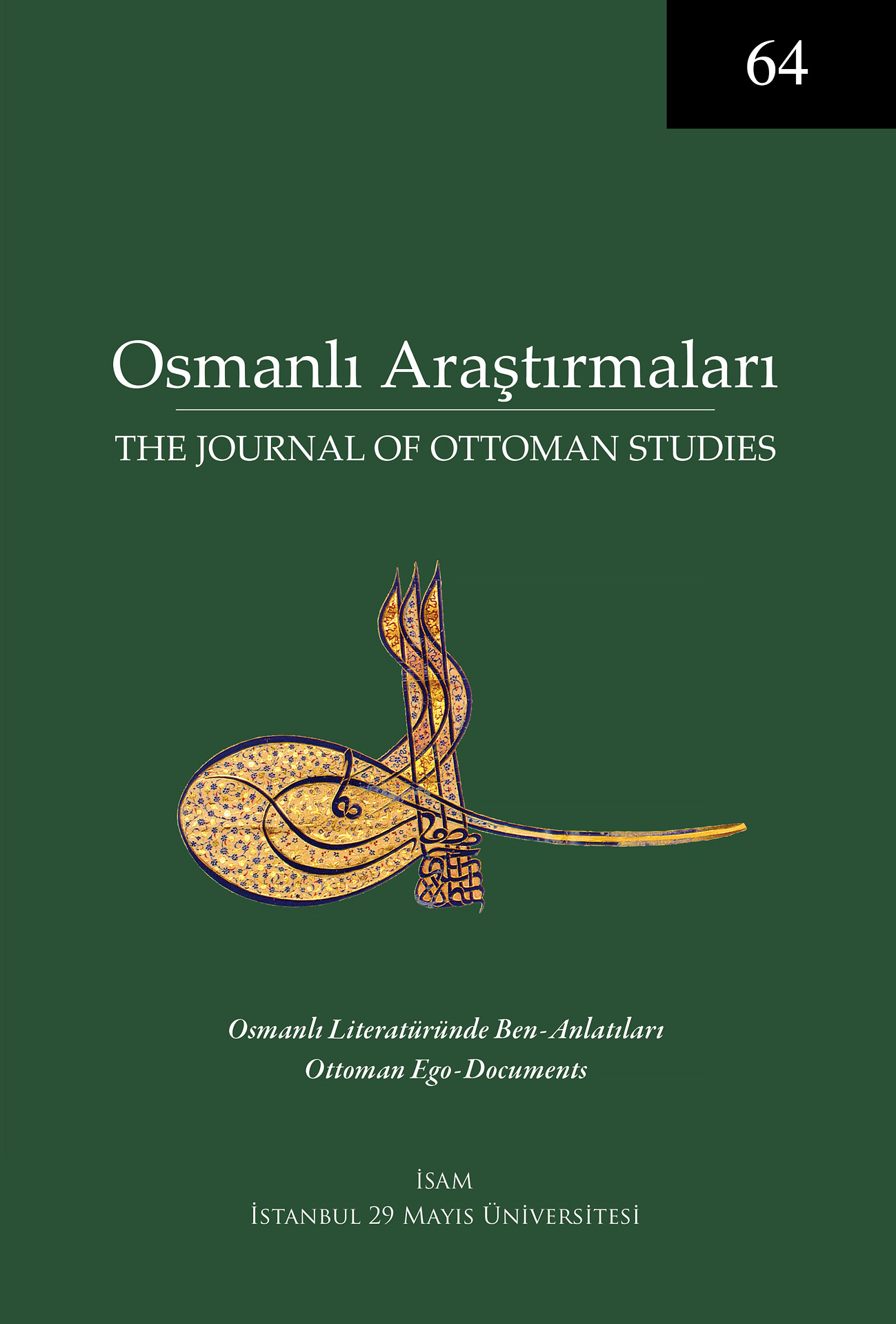Ahmed Cevdet Pasha’s 40th Tezkire as a Self-Narrative: Ego-Document and “Present-Time Cycle” in Historiography
Keywords:
Ego-Documents, Self-Narratives, Autobiography, Memoirs, Time in History, Present-Time Cycle in Historiography, Ahmed Cevdet Pasha, TezakirAbstract
Chroniclership was among the many positions that Ahmed Cevdet Pasha, a significant high-ranking Ottoman statesman, took over in the 19th century. He not only recorded events, but also left behind an autobiography, i.e. a self-narrative/ego-document. During and after his tenure as the chronicler of the state, Cevdet Pasha kept notes on events, some of which involved him personally. Sometime later he sent these notes in the form of Tezakir to his successor, the chronicler Ahmed Lutfi Efendi. The first 39 of the 40 Tezakir mainly examined earlier chroniclers and described events, while the last one contained his own biography. The 40th Tezakir should therefore be treated as the text of the Pasha’s self-narrative. While narrating his own life story, he also provides important information regarding the educational life, social relations, and the structure and functioning of the institutions in his time. In spite of the criticisms of this text and Tezakir in general that it does not take different perspectives into consideration and explains some issues from the author’s own perspective, this does not diminish its importance as an indispensable primary source on Ottoman state and society in the 19th century. In the last part of the study, under the title “Present-Time Cycle” in Historiography, we tried to illustrate the “author-text-reader” relationship in the example of Cevdet Pasha’s Tezakir. Authors of ego-documents usually decide to what extent and how much they reveal about the events or emotional worlds in which they took part as active or passive actors or witnesses. Texts written from the viewpoint and conditions of their authors are now understood in their “contexts” after the encounter with the “reader”. In this way, a “time-author-text-reader relationship” is created in which the “conditions of the reader” are decisive in the ego-documents, and this is renewed with each reader. Therefore, Ahmed Cevdet Pasha’s ego-document can be interpreted differently after meeting its readers in different eras.




